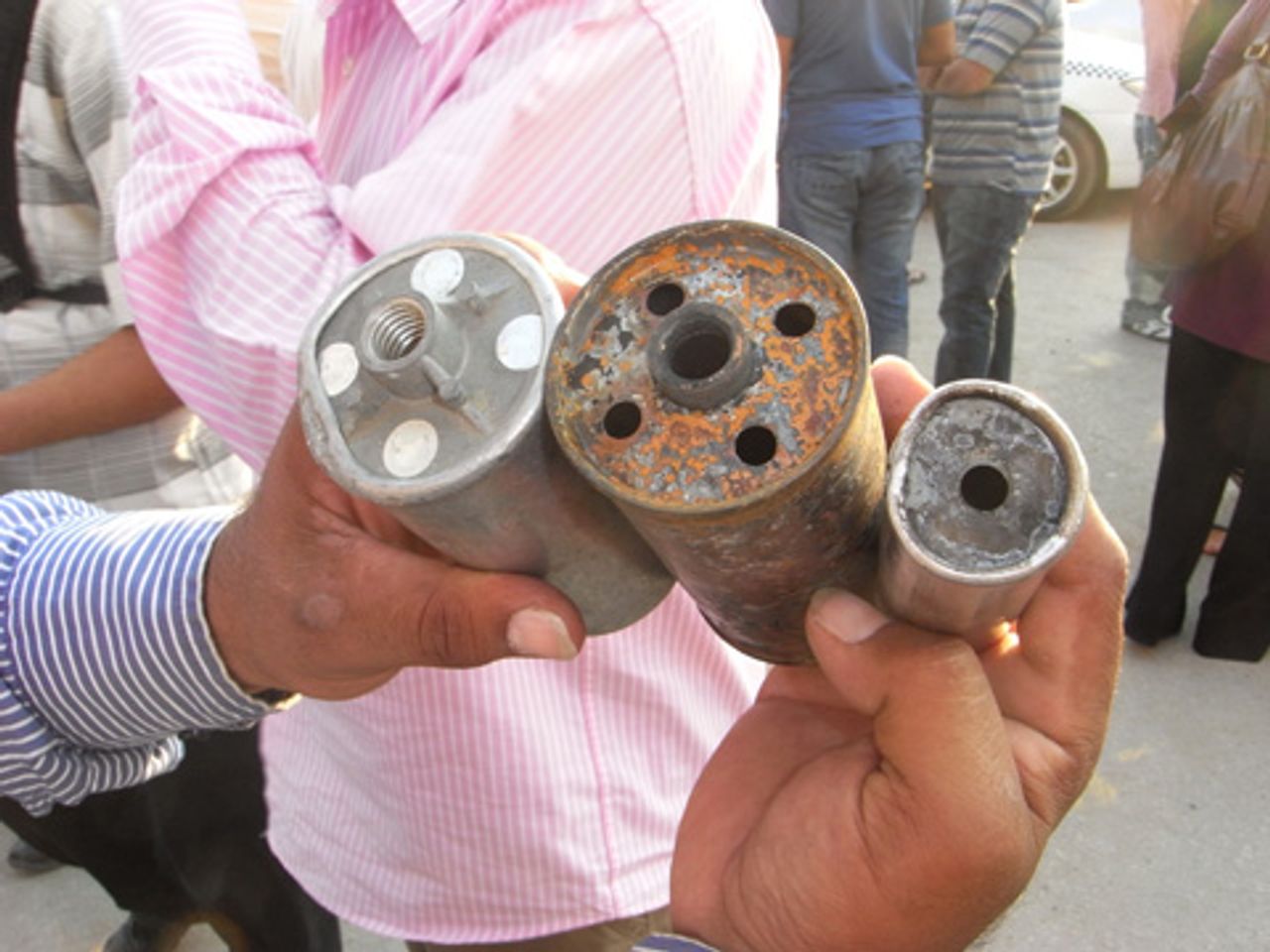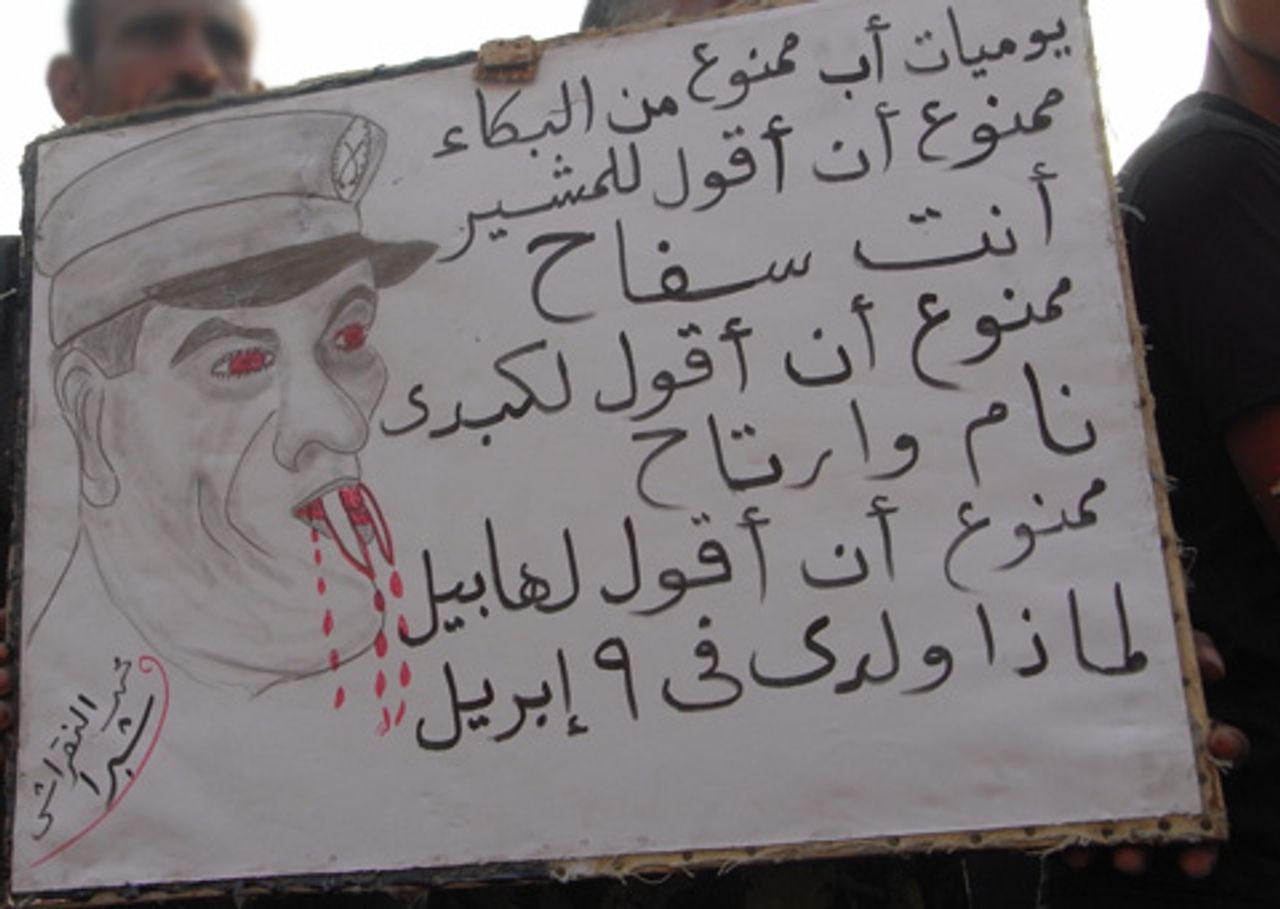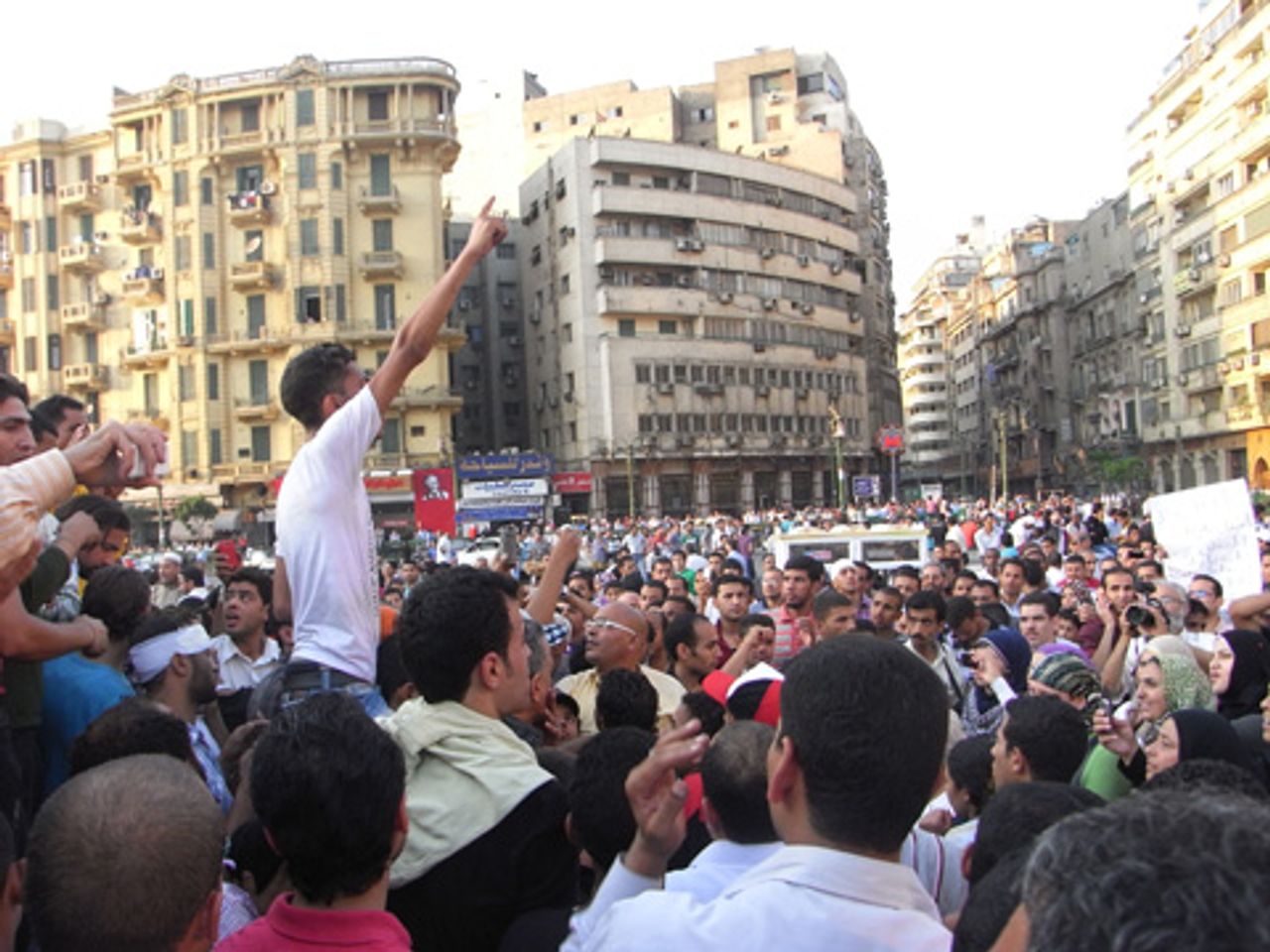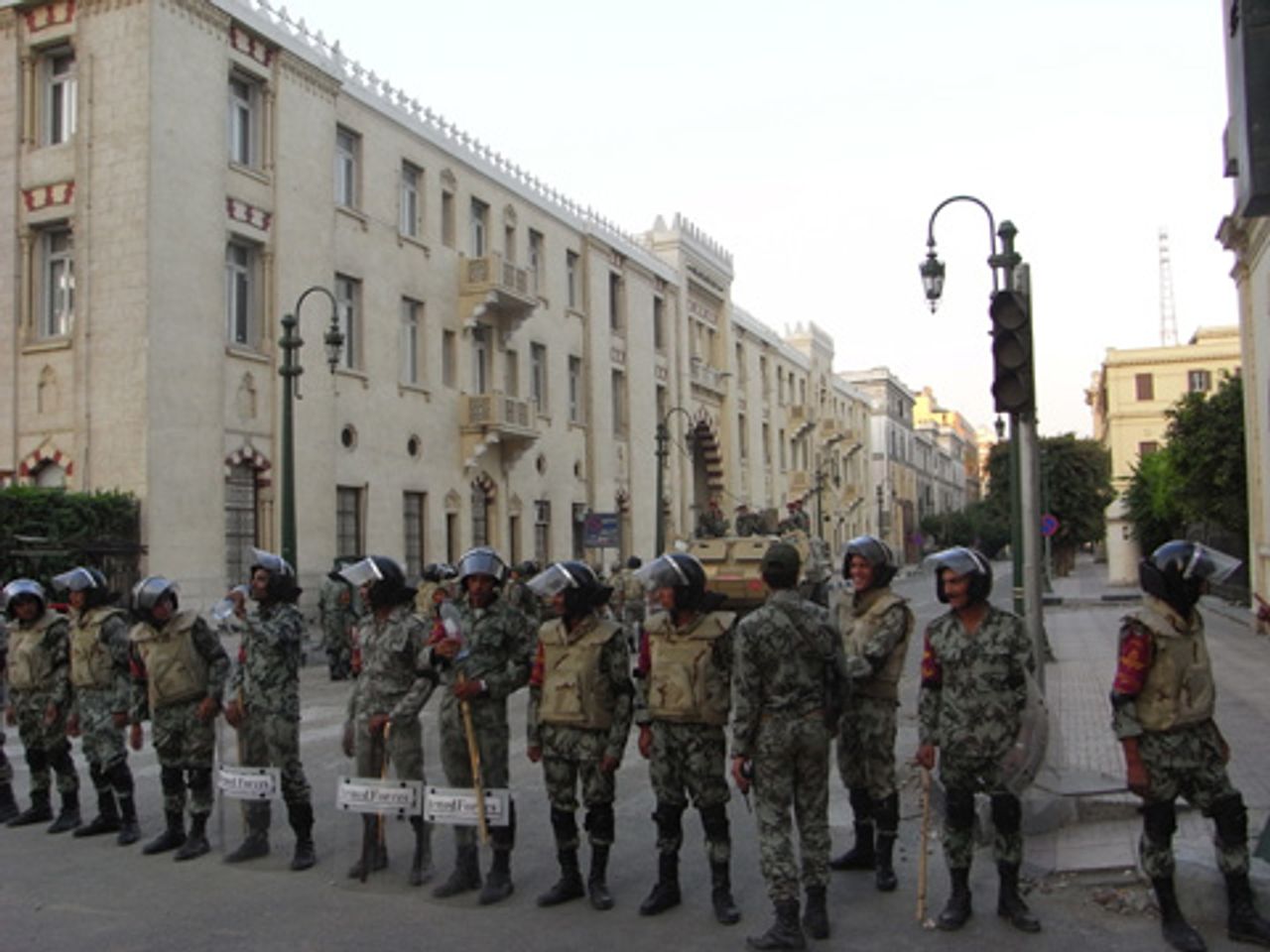The US-backed military government in Egypt has carried out a bloody crackdown of thousands of protesters in Cairo's Tahrir Square. Over one thousand have been injured, with dozens still hospitalized.
 Tear gas canisters, made in the USA
Tear gas canisters, made in the USAThe clashes began on Tuesday when police attacked relatives of some of the 850 people killed during the February revolution that brought down long-time dictator Hosni Mubarak.
The initial incident took place outside the Balloon Theater in suburban Cairo, where a memorial was being held for police officers killed in February. Family members of revolutionary martyrs of the protests were denied entry, and there were subsequent clashes with police, and, according to some eyewitnesses, thugs working with the police.
According to Ahram Online, “Some eyewitness accounts claim that one person was shot dead and several injured, including an elderly woman, who was slapped in the face by a police officer.”
Protesters moved to the Interior Ministry, long associated with military-police repression, where two of the relatives were reportedly being held.
By Tuesday night, as many as 6,000 demonstrators responded to these clashes by gathering at Tahrir Square, a center of the mass demonstrations in February. They were confronted by over 1,000 riot police armed with tear gas cannons and rubber bullets. (See, Video of police officers throwing stones at protesters)
 Poster calling military leader Tantawi a killer
Poster calling military leader Tantawi a killerThe violent crackdown on the demonstrations underscores the continuity between the old regime and the new, which is controlled by the same military figures that dominated Mubarak’s government. Field Marshal Mohammed Hussein Tantawi, a close ally of Mubarak and his former defense minister, is now the Chairman of the Supreme Council of the Armed Forces and the functioning head of state. He has enjoyed the closest relations with the United States and the US military, before and after the forced departure of Mubarak.
Among the slogans shouted by the protesters were, “Down with the military junta,” “The people want to oust the field marshal,” “Tantawi is Mubarak” and “Revolution until victory.” The protesters are also demanding the rapid prosecution of those responsible for the mass killings and arrests during the February events, including former Interior Minister Habib el-Adly and Mubarak himself. Earlier this week, the trial of el-Adly was adjourned for a month, sparking clashes between police and the relatives of victims.
One worker involved in the protests told the WSWS, “The system and police forces are still the same. Nothing has changed. The generals and police officers of Mubarak are still in power and are using the same brutal methods against us.” Pointing tear gas canisters used against the protesters, he explained that they were all made in the US or Israel.
 Crowds at Tahrir Square on Wednesday chanting against Tantawi and calling for a second revolution
Crowds at Tahrir Square on Wednesday chanting against Tantawi and calling for a second revolutionThe military immediately responded with provocative comments designed to set the stage for further repression. They protests, a statement claimed, were designed to “destabilize the country.” They moved Wednesday to prosecute 44 people arrested in the events.
Protest organizers, including a group known as the April 6 movement, had called for demonstrations July 8. They released a statement in the aftermath of the violence calling for the demonstrations to begin immediately. Protesters have set up tents in the square for a sit-in until their demands are met.
Over the past week there has been a marked increase in the military-police presence on the streets of Cairo. Police have been deployed in force, and army tanks and trucks were present on university grounds and downtown.
The move toward more direct repression coincides with growing class conflict, including strikes involving different sections of the working class against disastrous economic conditions, mass unemployment, and the failure of the military regime to meet any of the demands of the protesters who forced the ouster of Mubarak.
 Egyptian Armed Forces guarding government buildings in downtown Cairo
Egyptian Armed Forces guarding government buildings in downtown CairoLast Friday, farmers blocked main roads in Cairo, and there is an ongoing strike of Suez Canal workers. During the past month there have been strikes and demonstrations involving petroleum workers, train drivers, airline workers, auto- workers, students and farmers.
On June 8, the Egyptian government confirmed the application of a law criminalizing protests and strikes. The Supreme Council of the Armed Forces (SCAF) said the law was needed to “achieve stability” and that it would “not hesitate to respond to any attempts … to disrupt the law or harm the national economy.” Striking workers and protesters face fines of up to 500,000 Egyptian pounds ($83,000), and prison sentences of a year or more.
The repression is being carried out in close collaboration with the United States, which since the beginning of mass demonstrations has worked to maintain the military’s control over Egypt, a key US client state.
On Wednesday, Tantawi met with William Burns, the US deputy secretary of state. Burns said that the US was committed to “achieving short-term financial stability” in Egypt. The parallel with the regime’s demand for “stability”–i.e., an end to strikes and protests–would not have been lost on the military leaders, though no doubt there were more explicit expressions of support exchanged behind closed doors. Burns said nothing about the bloody crackdown that took place only hours before his visit.
According to Al-Masry Al-Youm, the two discussed “the democratic transition process in Egypt and the importance of US investment in Egypt’s economy.” The Obama administration and the European powers are seeking to exploit the revolutionary uprisings in the Middle East and North Africa to even further open up the countries of the region to the domination of Western corporations.
Burns’ visit followed a business delegation headed by US Senators John Kerry (Democrat) and John McCain (Republican). The delegation included Jeffrey Immelt, chairman and CEO of General Electric (and chairman of Obama's Council on Jobs and Competitiveness), and Curt Ferguson, president of Coca-Cola Middle East.
The two senators rang the opening bell of the Egyptian Stock Exchange, then toured a Coca-Cola plant and visited with Tantawi, according to Daily Egypt News. “The success and failure of the revolution in this part of the Arab world,” McCain declared, “will be directly related to the ability of providing investments and jobs for the Egyptian people.”
McCain combined his declarations of support for the Egyptian regime and US-based businesses with a threat against Syria, calling for the withdrawal of the US ambassador from the country and the imposition of sanctions against the government.
These developments underscore the basic fact that despite the mass protests earlier this year, none of the economic and political demands of the Egyptian masses have been achieved. The military regime is working to create conditions prior to elections scheduled in September that will ensure a compliant government. If this proves difficult, the elections will be delayed or put off indefinitely.
The authors also recommend:
“Egypt’s ‘second revolution’”
[31 May 2011]
